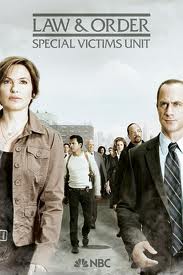Best of the Blogs: SVU, Carrots, and Yale Law
 When I write the “Best of the Blogs” feature, I usually try to identify some common theme that ties together some of my favorite posts of the past week. It doesn’t seem to be working this week. I’ll leave it as a challenge to enterprising readers to see if they can connect the following dots in some way that is eluding me.
When I write the “Best of the Blogs” feature, I usually try to identify some common theme that ties together some of my favorite posts of the past week. It doesn’t seem to be working this week. I’ll leave it as a challenge to enterprising readers to see if they can connect the following dots in some way that is eluding me.
First, I stumbled across this fun blog called Prime-Time Crime Review. The author is a real-life sex-crimes prosecutor named Allison Leotta. She posts after each new episode of Law & Order: SVU with an evaluation of how realistic the episode was. I could pitch this blog as a crim-pro supplement for law students, but really it’s much more entertaining than that would imply. Sample comments on the October 14 episode:
What they got wrong: First, the dress the new ADA was wearing. Skin-tight red leather with ruffles? I don’t think so. But she did look amazing. But then she went over the top with her lawyering tactics. When the nutty professor came in to plea bargain with his high-paid lawyer, they argued and the prof asked, “Can I fire him?” The ADA answered, “Sure!” and got the prof a new (young, inexperienced) lawyer. That would never happen in real life. The criminal justice system is adversarial, which means the prosecutor cannot advise the defendant, hook him up with a defense attorney, or even talk to him alone once he has a lawyer. If a defendant asks a prosecutor for a new lawyer, she can set up a hearing where the judge can listen to his concerns and appoint a new lawyer for him. This was as realistic as Jennifer Aniston selecting the dress for Anglina Jolie to wear to the Oscars.
The blog reminds me of one of my favorite lines from my all-time favorite TV lawyer — while watching L.A. Law, Lionel Hutz sarcastically observed, “Oh, sure, like lawyers work in big skyscrapers and have secretaries. Look at him, he’s wearing a belt!”
